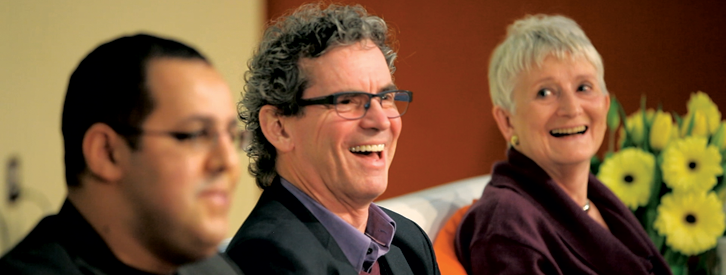Even though Internet enabled cyberspace is roughly a quarter century old, we continue to gather at international fora to debate the proper role of government in its governance. Unfortunately, this intellectual task has taken on greater urgency in recent years as an increasing number of states partake in actions that reduce traditional Internet freedoms. For a comprehensive evidenced-based discussion of such instances see:
- Identity, and Resistance in Asian Cyberspace;
- Access Controlled: The shaping of power, rights, and rule in cyberspace;
- Access Denied: The Practice and Policy of Global Internet Filtering.
Coincidentally, it has also been nearly a quarter of a century since esteemed International Relations scholar, James Rosenau, published Governance Without Government. At the time of writing, Rosenau and his co-authors sought to develop a new theoretical framework that would: 1) Address the failure of the realist school to predict the end of the Cold War, and 2) Account for the expanding number of public and private authorities involved in global governance. While Rosenau did not devote a great deal of attention to analysing the role of disruptive communications technology in post-Cold War structural change, he did recognise its potential to drive social and economic transformation on a global scale.
As the participants of CD13 gather at the Munk School of Global Affairs to discuss the future of Internet Cyberspace, one of the leading questions they will confront is ‘Who governs cyberspace in 2013 and beyond’? While many Internet icons such as John Perry Barlow, Vint Cerf, and Kilnam Chon, have long championed the idea of the Internet Cyberspace as a government free zone, increasing state intervention in key Internet governance areas makes this libertarian vision seem quaint, if not utopian.
Theoretical Frameworks
Within the International Relations discipline, there are a variety of competing theoretical framework/schools of thought that can be used to explain the changing modes of governance and authority in cyberspace. Approaches vary among the big four schools of thought: Realism pays close attention to state sovereignty and balance of power issues. Liberalism focuses on the role international institutions can play in facilitating positive sum cooperation. Marxism is concerned with power asymmetries between core and periphery states. Constructivism see ideas and elite discourses as a primary driver of policy formation. For those interested in combining something from each of the above schools of thought/theoretical perspectives, Rosenau’s more modular ‘post-international’ approach offers a possible fifth way.
CD13 participants interested in the scholarship of cyber governance issues will be challenged to offer alternative perspectives from disciplines both inside and outside of international relations. The practitioners among us should also feel compelled to offer new empirical insights, best practices, and technology perspectives that may help bridge the classic scholar-practitioner gap. CD13, meeting on the neutral ground of the University of Toronto, one of the world’s leading multiversities, seeks a true co-production of knowledge.
Looking Ahead
In the coming months and years, the Munk faculty involved with CD13 shall commence several interdisciplinary research projects aimed at improving our understanding of the multitude of actors involved in 21st century cyberspace governance. One such initiative, currently dubbed “The Mapping Project”, will set out to accomplish this task by 1) Mapping the array of public and private authorities involved in Cyberspace Governance. 2) Distributing map data to researchers globally for analysis and visualization using diverse research methodologies from multiple disciplines. A related project will build on Professor Ron Deibert’s innovative call for a “distributed security” model for national security in Internet cyberspace. Since these projects are in their early stage of design, we look forward to CD13 participant input in the coming days.
See you in cyberspace,
Rex Hughes
About Rex Hughes
Rex B. Hughes is a visiting fellow for cyber security at Wolfson College, University of Cambridge and at the Munk School of Global Affairs, University of Toronto. Internationally recognised for his expertise on the global political economy of the Internet, Dr. Hughes is a regular speaker at Euro-Atlantic leadership fora including the NATO Parliamentary Assembly, Global Economic Symposium, and St Gallen Forum. He provides expert advice to North Atlantic business and government entities.










